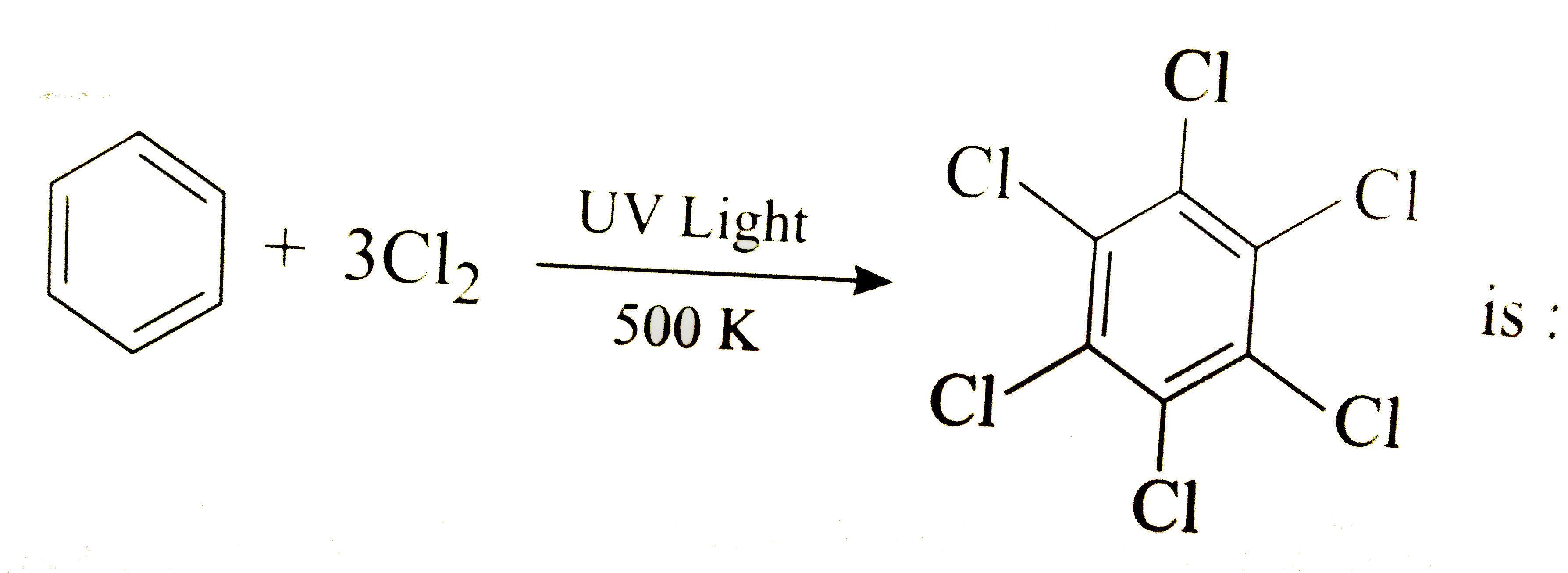All reaction with chemical dissociation are
Reversible
Reversible and endothermic
Exothermic
Reversible or irriversible and endothermic or exothermic
The correct Answer is:B
To answer the question "All reactions with chemical dissociation are," we need to define what chemical dissociation means and then categorize the types of reactions that involve it.
1. Understanding Chemical Dissociation:
- Chemical dissociation refers to the process where a compound breaks down into smaller components, usually ions or simpler molecules. This often occurs in solutions or during chemical reactions.
2. Identifying Types of Dissociation Reactions:
- There are several types of reactions that involve dissociation:
- Ionic Dissociation: This occurs when ionic compounds dissolve in water, separating into their constituent ions. For example, NaCl dissociates into Na⁺ and Cl⁻ ions.
- Molecular Dissociation: This can occur in covalent compounds where molecules break apart into smaller molecules or atoms. For example, the dissociation of hydrogen iodide (HI) into H₂ and I₂ under certain conditions.
3. Reversible and Irreversible Dissociation:
- Some dissociation reactions are reversible, meaning the products can recombine to form the original compound. An example is the dissociation of acetic acid (CH₃COOH) into CH₃COO⁻ and H⁺ ions, which can recombine.
- Others are irreversible, where the dissociation leads to products that do not recombine under normal conditions.
4. Conclusion:
- Therefore, all reactions with chemical dissociation can be classified as either ionic or molecular dissociation reactions, and they can be reversible or irreversible depending on the specific reaction conditions.
Final Answer:
All reactions with chemical dissociation are classified as dissociation reactions, which can be ionic or molecular, and can be reversible or irreversible.
- Chemical dissociation refers to the process where a compound breaks down into smaller components, usually ions or simpler molecules. This often occurs in solutions or during chemical reactions.
- There are several types of reactions that involve dissociation:
- Ionic Dissociation: This occurs when ionic compounds dissolve in water, separating into their constituent ions. For example, NaCl dissociates into Na⁺ and Cl⁻ ions.
- Molecular Dissociation: This can occur in covalent compounds where molecules break apart into smaller molecules or atoms. For example, the dissociation of hydrogen iodide (HI) into H₂ and I₂ under certain conditions.
- Some dissociation reactions are reversible, meaning the products can recombine to form the original compound. An example is the dissociation of acetic acid (CH₃COOH) into CH₃COO⁻ and H⁺ ions, which can recombine.
- Others are irreversible, where the dissociation leads to products that do not recombine under normal conditions.
- Therefore, all reactions with chemical dissociation can be classified as either ionic or molecular dissociation reactions, and they can be reversible or irreversible depending on the specific reaction conditions.
All reactions with chemical dissociation are classified as dissociation reactions, which can be ionic or molecular, and can be reversible or irreversible.
Topper's Solved these Questions
- THERMODYNAMICS AND THERMOCHEMISTRY BOOK - ERRORLESS CHAPTER - THERMODYNAMICS AND THERMOCHEMISTRY EXERCISE - ORDINARY THINKING (Objective Questions) Bond energy
15 Videos
- THERMODYNAMICS AND THERMOCHEMISTRY BOOK - ERRORLESS CHAPTER - THERMODYNAMICS AND THERMOCHEMISTRY EXERCISE - ORDINARY THINKING (Objective Questions) Free energy and Work function
57 Videos
- THERMODYNAMICS AND THERMOCHEMISTRY BOOK - ERRORLESS CHAPTER - THERMODYNAMICS AND THERMOCHEMISTRY EXERCISE - ORDINARY THINKING (Objective Questions) First law of thermodynamics and Hess law
100 Videos
- SOME BASIC CONCEPTS OF CHEMISTRYBOOK - ERRORLESS CHAPTER - SOME BASIC CONCEPTS OF CHEMISTRYEXERCISE - JEE Section (Matrix Match type questions)
3 Videos
Similar Questions
Knowledge Check
All reactions with chemical dissociation are
AreversibleBreversible and endothermicCexothermicDreversible or irreversible and endothermic or exothermic.All reactions which have chemical disintegration
AIs reversibleBIs reversible and endothermicCIs exothermicDIs reversible or irreversible and endothermic or exothermicThe chemical reaction,
 Aan addition reactionBan elimination reactionCa substitution reactionDrearrengement reaction
Aan addition reactionBan elimination reactionCa substitution reactionDrearrengement reaction
What is a chemical reaction ?
View SolutionAll reactions involving chemical decomposition are
View SolutionHalogen with lowest bond dissociation energy is
View SolutionFor a very small extent of dissociation of PCl5 into PCl3 and Cl2 is a gaseous phase reaction then degree of dissociation , x :
View SolutionIn a chemical reaction, rate of a chemical reaction increases with temperature. The reason is due to
View Solution